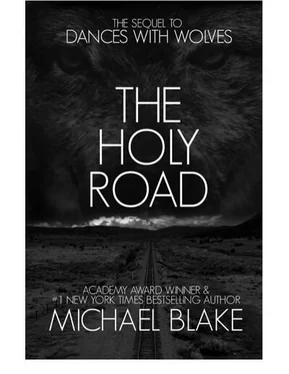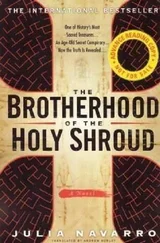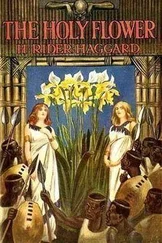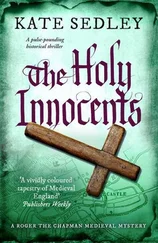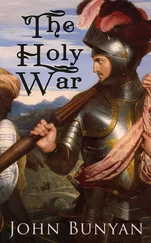Michael Blake - The Holy Road
Здесь есть возможность читать онлайн «Michael Blake - The Holy Road» весь текст электронной книги совершенно бесплатно (целиком полную версию без сокращений). В некоторых случаях можно слушать аудио, скачать через торрент в формате fb2 и присутствует краткое содержание. Год выпуска: 2011, Жанр: prose_military, на английском языке. Описание произведения, (предисловие) а так же отзывы посетителей доступны на портале библиотеки ЛибКат.
- Название:The Holy Road
- Автор:
- Жанр:
- Год:2011
- ISBN:нет данных
- Рейтинг книги:3 / 5. Голосов: 1
-
Избранное:Добавить в избранное
- Отзывы:
-
Ваша оценка:
- 60
- 1
- 2
- 3
- 4
- 5
The Holy Road: краткое содержание, описание и аннотация
Предлагаем к чтению аннотацию, описание, краткое содержание или предисловие (зависит от того, что написал сам автор книги «The Holy Road»). Если вы не нашли необходимую информацию о книге — напишите в комментариях, мы постараемся отыскать её.
The Holy Road — читать онлайн бесплатно полную книгу (весь текст) целиком
Ниже представлен текст книги, разбитый по страницам. Система сохранения места последней прочитанной страницы, позволяет с удобством читать онлайн бесплатно книгу «The Holy Road», без необходимости каждый раз заново искать на чём Вы остановились. Поставьте закладку, и сможете в любой момент перейти на страницу, на которой закончили чтение.
Интервал:
Закладка:
The idea of laying siege to the whites was dismissed when it was pointed out that more soldier traffic was sure to be coming down the heavily used road, and at last it was decided to break off the fight. They would pull out quietly an hour after sundown, leaving the soldiers to suffer in suspense through the night.
The war party traveled for many hours before finally making a long halt on the open plains at noon of the next day. Triumphant spirits were still running high and though a few of the exhausted warriors dozed, most sat smoking around a score of fires, recounting all that had happened.
The Kiowas had not lost a single man and had taken thirteen scalps. The Comanches had taken only three, but all belonged to fighting men, and both forces were well satisfied with the proof of their victory.
Conversations returned again and again to the exploits of Smiles A Lot. He had dazzled all who had seen him and was rewarded with first choice of the stolen animals. Among the horses was a slim, all-black gelding. The horse proved exceptionally fast and quick on his feet and Smiles A Lot seemed glued to his back all the way home.
Only one man eclipsed the unlikely hero as a topic of conversation, and he, ironically, had been far out on the plains in the midst of a long afternoon nap when the attack on the corn wagons took place. Nonetheless, it was Owl Prophet's name that was most often on the lips of the warriors as they rode home. It was his prophecy that had led directly to the death of so many whites, to the whipping of the soldiers, and to their own comparatively light losses. Owl Prophet, the warriors agreed over and over, must be an agent of the Great Mystery for his simple instructions had delivered victory and averted disaster.
But no one, not even Owl Prophet himself, could have foretold or guessed or dreamt the depth of the disaster that had, for the time being, been avoided in the place whites called the Great Salt Prairie.
The tiny group of soldiers who passed unmolested before the eyes of Wind In His Hair and White Bear had possessed a prize of incalculable value in the common ambulance they were escorting. Under the canopy of that spartan vehicle, next to the ordinary soldier who was driving, was the chief of every hair-mouthed blue-coat in the United States, the general known as Sherman.
Had Owl Prophet not spoken, General Sherman would surely have been killed — stripped, scalped, and dismembered — and his demise would have provoked total war, bringing the powerful wrath of a united white nation down on the heads of the Kiowas and Comanches with sledgehammer effect.
The man they had spared was taciturn as a stump and bilious in the extreme. It was he who had championed the strategy of "scorched earth" and brought the Confederate States of America to its knees. His face was scarred by battle and his small eyes, by any standard, looked inordinately cruel. It was his unalterable goal that in his presence, politicians should quake, subordinates should tread softly, and commoners, whether soldier or civilian, should be struck dumb with awe. He was the steadiest, most brilliant General of the army the United States had ever produced.
On the fateful morning he had skirted death, General Sherman had said nothing to his lowly companion in the ambulance, because nothing could be said. The country was as desolate as any other on the Texas frontier.
Worthless, he had thought to himself as he stared ahead at the bleak landscape, the stub of a cigar clenched in his teeth. Just like all the rest. How long have I been here? Almost three weeks. Inspecting what? The stinginess of my budget? Listening to whom? Broken-down farmers and backwoodsmen wringing their hands, begging for protection. From what? Half-naked men with bows and arrows that they see behind ever tree. I served with the president. He wants peace. A drunk who wants peace. Wo doesn't want peace? That's why we fight. He was better as a soldier. Goddamn Indians. I haven't seen a one. Just the same, I'd clear the country that fast if I had the authority. Then these people's carping would cease and, the army could get on to other business. Goddamn, godforsaken country. Who would want to live here?
General Sherman had taken the road from Fort Richardson to the new post at Fort Sill against the advice of everyone with the courage to speak. The country was too dangerous to traverse virtually alone. Doubling his token escort would not have made the general any more secure, and more than one officer had prudently suggested that he travel with the corn train, which was bound also for Fort Sill.
But Sherman did not take the danger seriously and his bile rose at the questioning of his wish to travel early and light. He was eager to inspect the construction of what was to be an enormous installation, and was looking forward, after sharing the mess tables of so many dubious officers commanding far-flung posts, to the company of Colonel Mackenzie.
Mackenzie was a queer one, to be sure — unmarried, moody, and given to oddly timed fits of temper. But his talent for leadership, his reliability, his energy, and his terrier-like pursuit of the enemy raised him above other officers when it came to field command. General Sherman was looking forward to the breath of fresh air Colonel Mackenzie's competence would bring him.
He was hurrying through breakfast with Mackenzie the next morning, anxious for a firsthand look at the new construction, when a first sergeant knocked at the door so violently that both soldiers started out of their seats. A squad of tired, terrified cavalrymen had come in, he informed them, with news of the wagon-train massacre. Within an hour's time, the two officers were riding toward the site at the head of nearly fifty mounted troops.
The timing of their arrival at the Great Salt Prairie coincided with the appearance of a large group of aggrieved civilians from a settlement named Floyd, which had been home base for most of the unfortunate drivers whose bloated corpses were now turning black in the noonday sun. Since no one had as yet been interred, General Sherman had the opportunity to view the charred, eyeless bodies, which were still lashed to the wagon, wheels, and, after squatting a few moments in front of the grinning carcasses, expressed the wish to speak with civilian and soldier alike.
The general told his somber audience that he took this travesty as a personal affront and, so long as he was General of the Army punishment of the perpetrators would be his highest priority. Nor would he stop at atonement for the innocent lives so wantonly destroyed. The material wealth of the Indians would be confiscated until every ear of government corn had been compensated.
A few days later General Sherman, standing ready to travel a hundred miles to the railhead, where he would board a train east to Washington, lit his cigar and whispered to Colonel Mackenzie: "I'm going to work on the president as soon as I get back."
“Yes sir."
"Keep your troops in readiness."
“Yes sir.”
"You'll be going after these people as soon as I can clear channels."
"I'll serve you in any way I can, sir. We'll be ready."
"We need to end all this."
"Yes sir."
Chapter XXVIII
The great war party made its victorious return a few days after Kicking Bird's, but as revelers ruled the village with dancing and feasting, the man who had spoken so effectively for his people stayed in his special lodge, gazing morosely through the hours of the day and night at the flames of his fire.
His wives brought food and drink, and his children popped their heads in from time to time for a look at their father, but otherwise they let him alone. It was obvious that he was troubled as never before, and to the regular queries from his wives as to what troubled him, he offered the same reply again and again: "I am thinking."
Читать дальшеИнтервал:
Закладка:
Похожие книги на «The Holy Road»
Представляем Вашему вниманию похожие книги на «The Holy Road» списком для выбора. Мы отобрали схожую по названию и смыслу литературу в надежде предоставить читателям больше вариантов отыскать новые, интересные, ещё непрочитанные произведения.
Обсуждение, отзывы о книге «The Holy Road» и просто собственные мнения читателей. Оставьте ваши комментарии, напишите, что Вы думаете о произведении, его смысле или главных героях. Укажите что конкретно понравилось, а что нет, и почему Вы так считаете.
